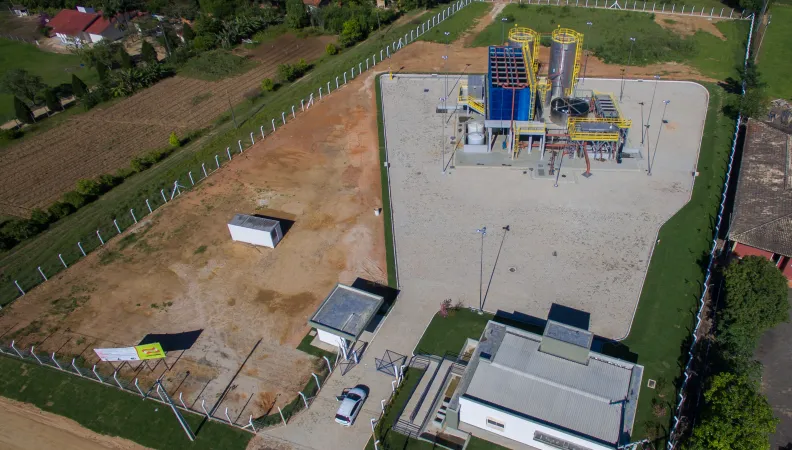Share the page
Wastewater treatment in the State of Santa Catarina
Project


-
Project start date
-
Status
Ongoing
-
Project duration
-
24 years
-
AFD financing amount
-
€ 100000000
-
Country and region
-
Location
-
Santa Catarina
-
Type of financing
-
Beneficiaries
-
Casan
AFD is supporting the sanitation program in Santa Catarina in order to provide drinking water to 200,000 people, while protecting the coastline.
Context
The State of Santa Catarina, in Southern Brazil, is one of the most developed States in the country. However, it is lagging well behind in terms of sanitation: only 15% of the urban population has collective sanitation, against a national average of 50%. The Water and Sanitation Company of Santa Catarina (CASAN), a semi-public company with the State as majority shareholder, has launched an ambitious catch-up program for investments in this sector. It has mobilized financing with federal resources to upgrade infrastructure. AFD is cofinancing this program with a direct loan to this company.
Description
The collective sanitation infrastructure program comprises 500 km of sewer networks, 40,000 network connections, 9 wastewater treatment plants with a total treatment capacity of 45,500 m3 a day and a remote management system for electro-mechanical and supervision equipment (alarm management, diagnostics, performance monitoring). These management tools are in the pilot phase for water distribution and do not yet exist for sanitation. They will be systematized at CASAN.
The program contributes to improving access to sanitation services for a population of 200,000 people. A geographic information system is also planned in order to optimize the maintenance and renewal of water and sanitation networks. A consultant will assist CASAN in the definition of its needs and the implementation of the tool. The sludge from the treatment (7,500 m3 a year for the program) will be buried in landfill and the methane produced by the plants will be burnt on site.
Depending on the conclusions of this research, AFD may assist the State of Santa Catarina and CASAN in the definition of a strategy concerning the final destination of the sludge from sanitation.
Impacts
- Economic impacts: Development of tourism potential, especially on the coast; reduction in public health expenditure and the cost of water treatment.
- Environmental impacts: Reduction in untreated wastewater discharges into the natural environment, in the regions of Rio do Peixe and Litoral Centro Sul; improvement in the quality of effluents discharged into water courses, lagoons and coastal waters, so that they comply with Brazilian environmental standards.
- Health and social impacts: Reduction in exposure to waterborne diseases and improvement in the quality of life of riparian populations.


